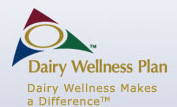The state of Pennsylvania has taken an industry-leading step – notifying processors that sell milk in the state that false or misleading labels must be changed. The Pa. Department of Agriculture has authority over food labeling through the Pennsylvania Food Act and the milk sanitation law. Specific to milk and dairy products sold in the state, the department has the authority to disapprove any label deemed false or misleading.
Of the 140 dairy companies whose labels have been reviewed to date, 16 use labels that are considered inaccurate or misleading because they contain claims that cannot be verified or implying that their product is safer than others through ‘absence labeling’ – telling consumers what is not present in the milk as opposed to what is. The 16 permit holders whose products are mislabeled are located in Pennsylvania, New York, New Jersey, Connecticut and Massachusetts and will have until Jan. 1 to correct the labels.
Pa. Agriculture Secretary Dennis Wolff said claims such as “antibiotic-free” and “pesticide-free” are misleading because all processed milk sold in Pennsylvania is tested a minimum of 10 times to guarantee that it is free of such substances, which are illegal for milk to contain.
“Consumers rely upon the labeling of a product to make decisions about what they buy and what to feed their families,” said Wolff. “The department must approve the labels for milk sold in Pennsylvania and we’re seeing more and more marketing that is making it hard for consumers to make informed decisions.”
Label claims that are inaccurate or that cannot be verified are also being seen in the marketplace. For example, some milk labels contain statements such as “hormone-free,” but all milk contains hormones. Some labels also claim the absence of synthetic hormones, but there is no scientific test that can determine the truth of this claim.
In addition, Wolff said some of the mislabeled products cost more than those labeled correctly. This has become a degrading factor for low-income families who want to buy safe food for their children but cannot afford more expensive milk that is misleadingly or inaccurately marketed as a safer product.
“Consumers are concerned or confused about product labeling,” said Wolff. “It’s a subject the department continues to receive many calls about.”


 Dairy Markets Week in Review
Dairy Markets Week in Review